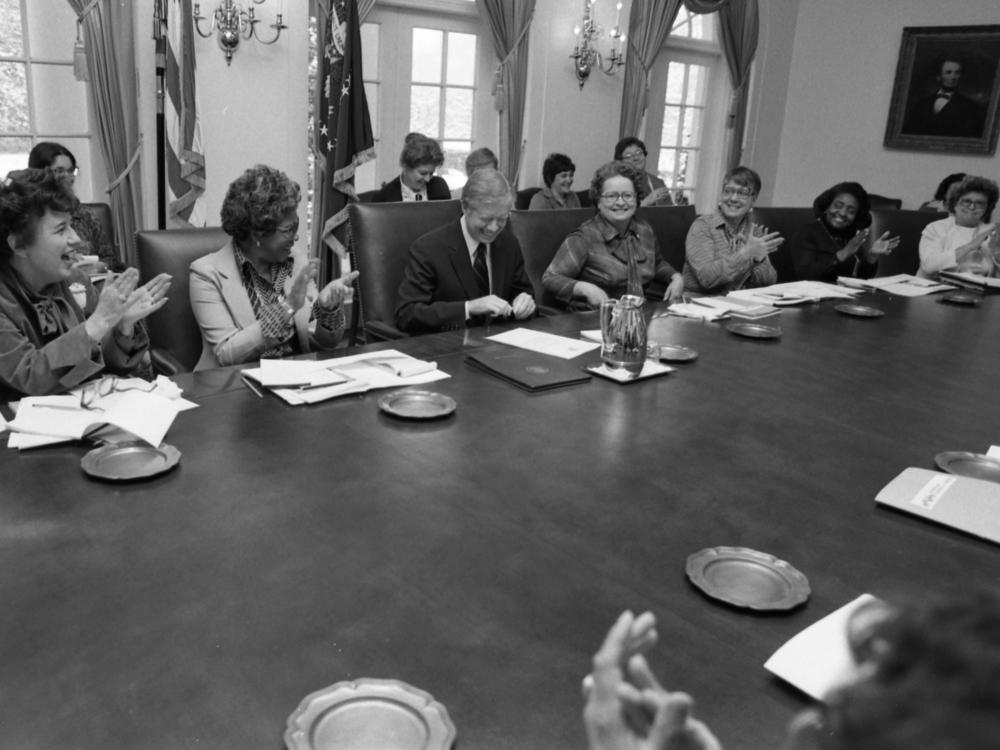Section Branding
Header Content
Women's History Month grew out of a weeklong commemoration by Jimmy Carter in 1980
Primary Content
Years before it became a full month, there was Women's History Week.
In 1978, Sonoma County, Calif., held the first known Women's History Week to align with International Women's Day.
At the time, women's history was "virtually an unknown topic in the K-12 curriculum or in general public consciousness," according to the National Women's History Alliance.
The idea quickly spread to other counties and organizations across the country that held their own events about women's history, and a group of advocates began lobbying for a national Women's History Week.
By 1980, their goal was realized. In February, President Jimmy Carter issued a presidential proclamation declaring the week of March 2-8, 1980, as Women's History Week.
In his proclamation, Carter noted that men and women have worked together to help build the United States since the country's founding.
"Too often, the women were unsung and sometimes their contributions went unnoticed," he wrote. "But the achievements, leadership, courage, strength, and love of the women who built America was as vital as that of the men whose names we know so well."
Carter also used the moment to call for the passage of the Equal Rights Amendment, which has been approved by 38 states but still remains in legal limbo.
The 98-year-old former president entered hospice care in February after a series of short hospital stays.
It wasn't until seven years after the first national Women's History Week that, in 1987, Congress passed a law proclaiming the month of March as Women's History Month across the U.S.
Since 1995, each president has issued proclamations naming March as Women's History Month, according to the National Women's History Museum.
President Biden did just that on Tuesday.
"Women — often women of color — have been on the frontlines, fighting for and securing equal rights and opportunity throughout our country's history as abolitionists, civil rights leaders, suffragists, and labor activists," Biden said.
"But despite significant progress, women and girls continue to face systemic barriers to full and equal participation in our economy and society," he added.
The theme for this year's Women's History Month is "Celebrating Women Who Tell Our Stories," and will recognize women "who have been active in all forms of media and storytelling including print, radio, TV, stage, screen, blogs, podcasts, and more."
Copyright 2023 NPR. To see more, visit https://www.npr.org.

